 Currently Watching: Buddy Cop J-Drama MIU404
Currently Watching: Buddy Cop J-Drama MIU404
Disclaimer: the characters from the screenshots may or may not be the culprits of their respective shows.
Case-of-the-week procedural dramas are one of the staples of entertainment TV. Each episode of such a drama introduces a new case and new suspects; by the time the credits roll the culprit is usually found. However, in every procedural worth its salt, the case wrap-up includes a scene hinting that some sinister plot is afoot unbeknownst to the main character. Who is the figure behind this plot? And why is this figure different in J-dramas and K-dramas?
Let's first look at the clues that point to the culprit in any given episode of a case-of-the-week procedural and then dive deeper to find out who is the main character's ultimate enemy and what differs J-drama and K-drama procedurals.
The Culprit of the Week
A body is found in unusual circumstances; as detectives gather on the scene (and the drama's opening montage begins), the viewer starts the guessing game. Who is the culprit, who-dun-it?
The first clue is that the murderer is someone among the characters. Here the knowledge of Japanese and South Korean actors and their typecasting offers an insight. Is the culprit a character played by the actor famous for their portrayal of evil villains?
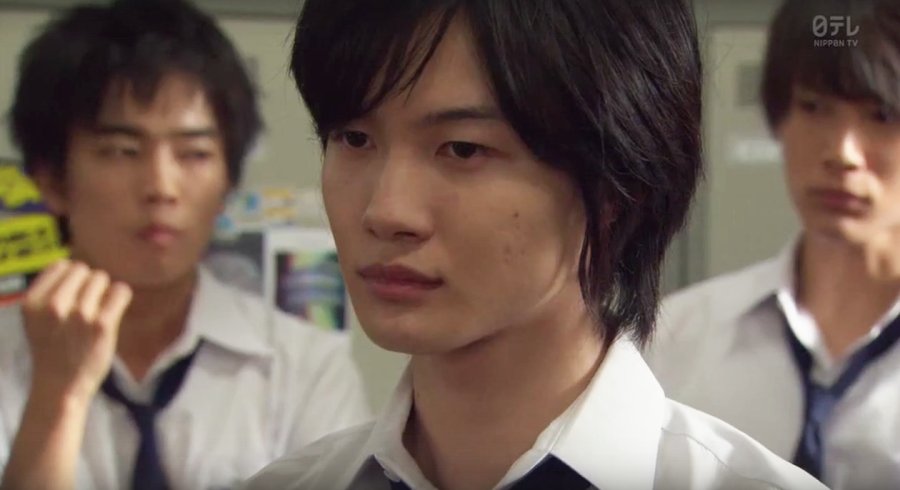
"Of course I'm innocent," the character of Kamiki Ryunosuke says even though the actor's schoolboys are almost never up to any good (Kindaichi Shonen no Jikenbo N (2014)).
Or, perhaps, the culprit is a character played by the most good-looking/acclaimed guest star?
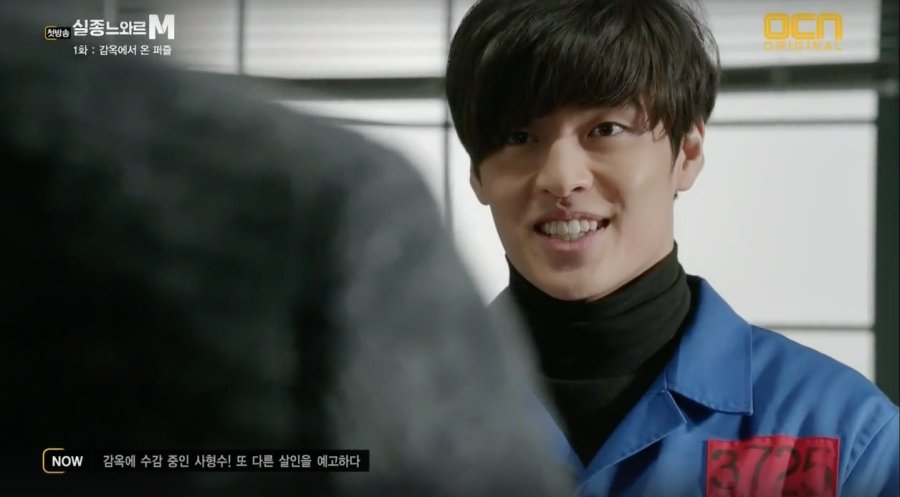
"Duh". Kang Ha Neul's character claims he's a serial killer even before the viewers begin to wonder what kind of role the famous actor plays (Missing Noir M (2015)).
Is the culprit a character played by the well-known actor who seems to have a suspiciously small support role?
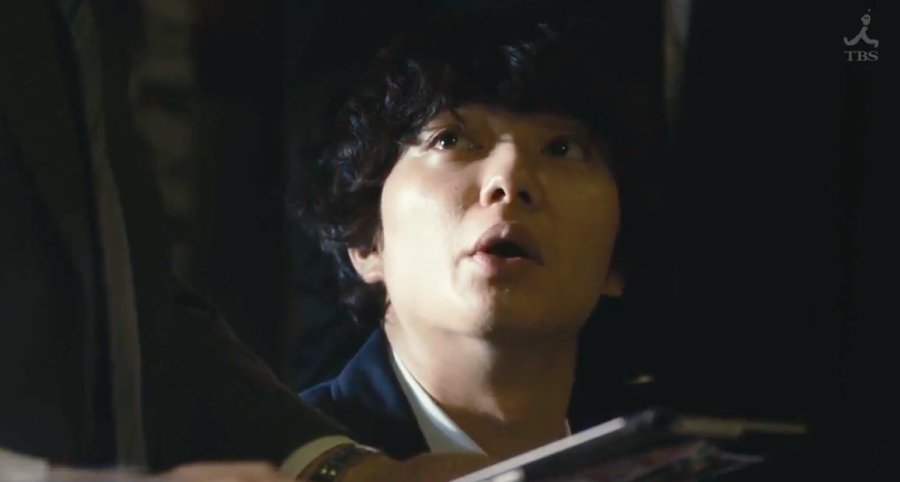
"Me? No way!" a character of Sometani Shota says as if anyone would believe that the Venice Film Festival awardee was hired just to play a random witness for 5 minutes of screen time (MOZU Season 1 - Mozu no Sakebu Yoru (2014)).
Having exhausted the clues from the cast, the viewers inspect the characters themselves. It is time to unleash the vast knowledge of detective genre tropes or, in other words, to use the little grey cells (or science of deduction, obviously).
The golden rule of classic mystery suggests that the culprit is the gardener or, more precise, someone, the viewers would least suspect.
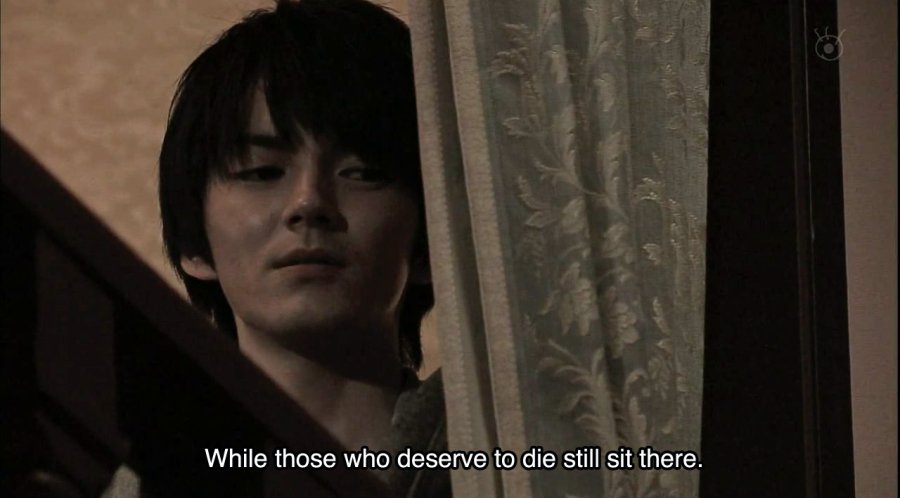
"Why do only good people die?" the youngest among Karamazov brothers says and no amount of Hayashi Kento's cuteness can alleviate the viewers' suspicion (Karamazov no Kyodai (2013)).
Perhaps the culprit is the character who gives the viewers the creeps? Someone who smiles at the wrong times and who is obsessed with the main character?
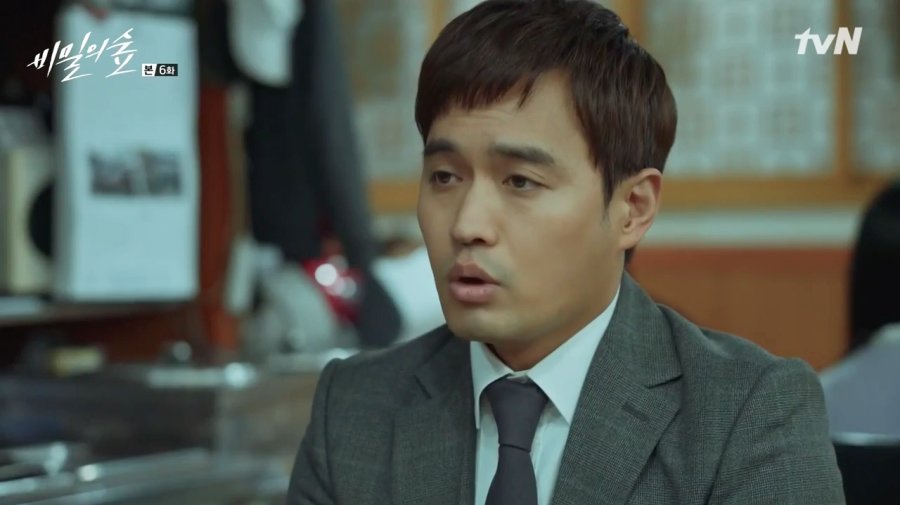
"Hey, I'm not obsessed!" Seo Dong Won's character says even as the main character marvels that his former classmate suddenly appeared and got tangled in the mysterious case (Stranger (2017)).
Finally, if all else fails, the last option must be explored. Is the culprit the main character?
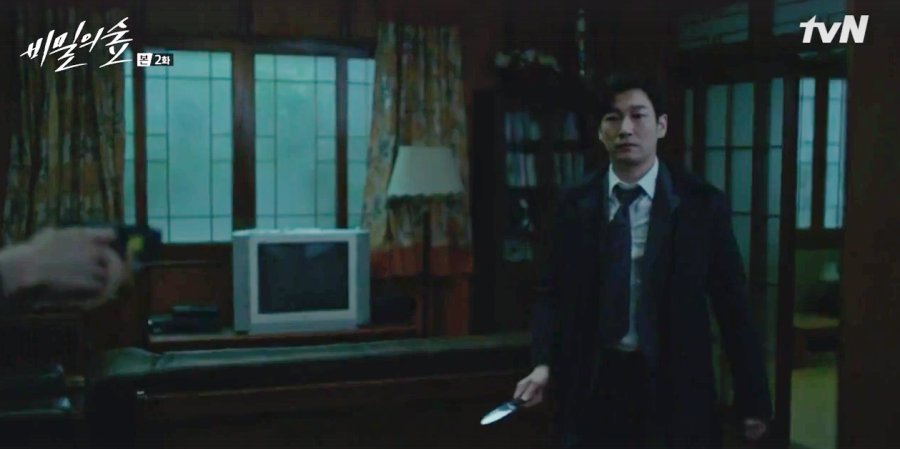
"I can explain," Jo Seung Woo's character says, but can he? Why is he holding the murder weapon at the scene of the crime? (Stranger (2017))
Now that the viewers examined all options, they have probably guessed the culprit of the week correctly. But, deep down, they know that all these culprits that appeared and have been defeated in turn throughout the episodes are, in fact, small fries. The real and final enemy is still at large.
Tiny hints have been spread out all over the drama - the hints of a sinister presence that has been lurking behind every case while plotting the main character's demise. Who is this enemy? What do they want? The answer to these questions depends on whether the procedural drama was made in Japan or in South Korea.
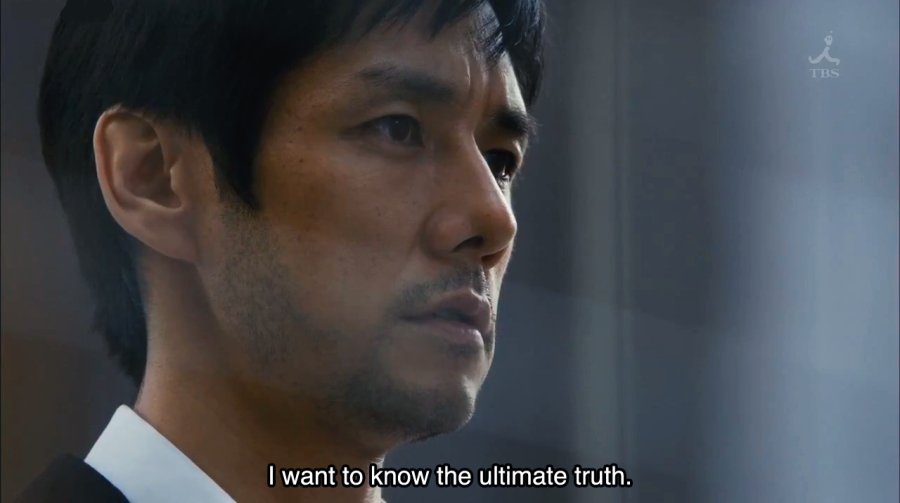
Nishijima Hidetoshi's character is ready to find out the answer (MOZU Season 1 - Mozu no Sakebu Yoru (2014)).
Let's look at the answer for each country (beware that there are spoilers below for the tropes of the genre, but there are none for specific dramas).
J-Drama Procedurals Ultimate Enemy
The enemy has been there since the first episode. It's a man. He has been strict but understanding while he guided the main character on their path. He has been offering valuable life advice and has seemed wise. He is, in fact, the father figure of the show, the most important character in the story among those who are older than the main character. He is often the main character's current or retired boss.
The viewers are understandably shocked when they are met with such a betrayal from the father figure for the first time. How could that sweet old man be the one who has orchestrated this series of gruesome murders / stood behind the corruption in the force / let the criminals get away with their crimes? After all the good stuff he had done for the main character?
But, as the viewers watch J-drama after J-drama, they realise that the plot twist where the father figure turns out to be the main villain is ubiquitous in procedurals. The ultimate enemy of every Japanese detective, it seems, is the detective's boss. Some plot twists "shockingly" include the villain being a boss of the boss instead.
One can speculate that the betrayal committed by the immediate leadership is such a popular plot device because it is the only possible reason for systems not to function properly in Japan. It is believed that hard work and loyalty of ordinary workers should be enough for a prosperous and just society. Only when the boss of these workers betrays their trust, disasters and injustice happen.
However, exceptions to this trope do exist. In some rare (and edgier) dramas the culprit is the society as a whole and not just one person.

"Don't blame us!" the residents of small Japanese suburb say even as the viewers realise that all of the characters are suspicious in their own right (Iari: Mienai Kao (2018)).
K-Drama Procedurals Ultimate Enemy
K-drama procedurals feature a lot more Hannibal Lecter-like evil masterminds than the J-dramas. Sometimes those masterminds turn out to be the ultimate enemies of the main characters. More often than not, though, their presence in the story is just a red-herring.
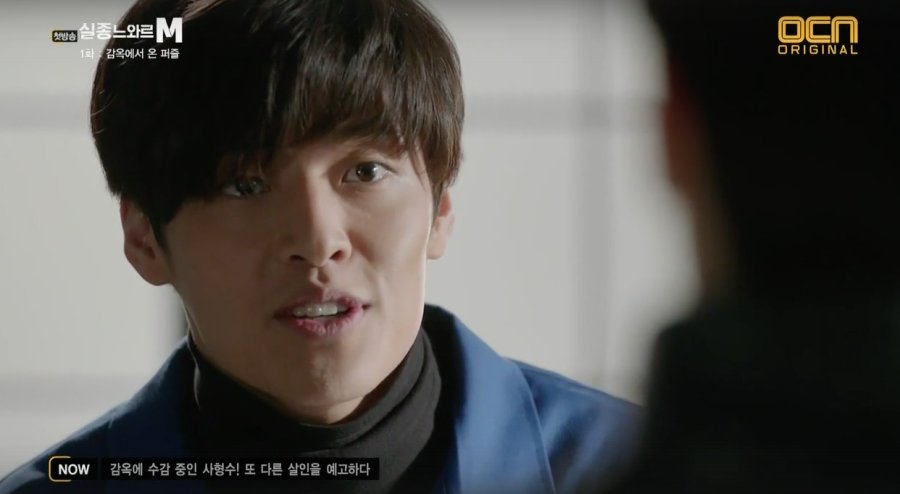
"Huh?" (Missing Noir M (2015))
The identity of the main villain in K-dramas is, in fact, secondary. Whether it was a powerful government official or a president of a big corporation who caused the most damage during the drama, a real enemy that stood behind them was an unjust rotten system that turned them this way.
The issues of corruption, government systems serving only the rich, people with low incomes having no support are common around the world. K-dramas, though, specifically focus on these issues. While Japanese TV-detectives fight the person who sabotaged a perfectly working system, it seems that Korean detectives are up against a system that is unjust from the start.
The fight against an unjust system is a losing battle. That makes K-drama procedurals a tough watch with plot resolutions that leave the viewers with a bitter aftertaste. On the other hand, thanks to this approach, these dramas feature unbelievably cool characters that bravely stand up to injustice no matter what.

Nothing can stop this trio (Signal (2016)).
While watching J-drama and K-drama procedurals, one may ask, if the ultimate enemy is the same every time? Well, knowing the culprit ahead of time just shifts the focus to the mystery of how the crimes were committed and whether the main characters will be able to bring the culprits to justice and even (I'm looking at you, K-dramas) if they will be able to survive. It's still fun!
Do you feel better equipped to guess the culprit of a procedural now? Or is it child's play for you anyway? Are you shocked by the finale of J-drama procedurals every time? Do you disagree that 'unjust system' is the villain of the most K-drama crime shows? Can you share your opinion about prominent trends in detective dramas from Japan, South Korea, China, Thailand, etc.?








